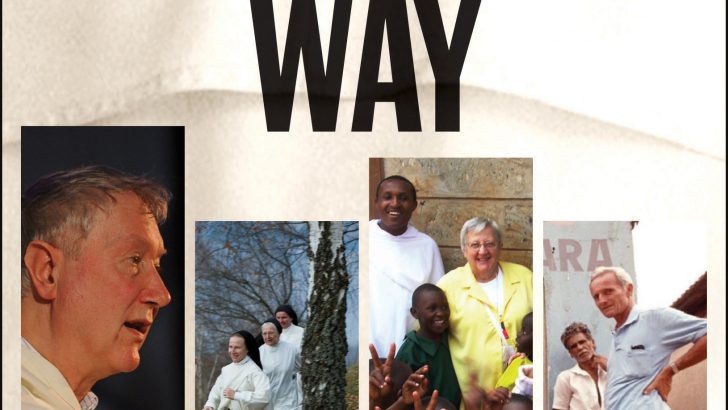The Dominican Way
Edited by Lucette Verboven, with an introduction by Timothy Radcliffe (Continum, €14.55 / £10.99)
From the prominence of his name on the cover, it might be thought by some potential readers that Fr Radcliffe had a larger hand in this book than he had.
It is in fact the work Lucette Verboven, a Belgian documentary film maker, and the author of a book on life as a pilgrim.
This present book very much resembles a TV documentary, for it is actually a series of interviews with some 16 Dominican priests and sisters around the world.
Timothy Radcliffe provides not only an introduction, and opening and closing interviews, as well as one in the middle, which is appropriate as one time Master of the Dominican Order. Many readers will already be familiar with him, either from his writings or his lectures and retreats.
So much might be familiar, but the real interest in this book is in the rest of the interviews, with Dominicans, so to speak, among the few workers attempting to bring in the harvest.
As Fr Radcliffe points out in his introduction, the Order of Preachers was found precisely to do that: to expound the good news of the Gospels. But these days, the Dominicans who undertake this work are of all kinds — artists, writers, scholars, experts on Islam.
Their metiers are an aspect of their vocation, their special skills are put to use in the task of their order.
But the real interest, as I say, I think lies with those who talk about their experiences in less familiar countries, such as Benin and Egypt.
One contributor is from Ireland, Breda Carrol, who lives in a community in Drogheda. Readers will recognise much of what she says about the past, and her comments on her life and experiences might actually form a way into the other pieces.
She alludes to Eucharistic Adoration as a sort of zen meditation of a kind she had heard about from Fr Oshida, a Japanese Dominican, who is also a contributor.
This alone shows how the order has attempted to encompass as valid many approaches to the divine which were perhaps frowned upon in the 1950s when Breda Carroll entered her monastery.
I found the interview with Godfrey Nzamujo of Benin quite insightful. He runs an institution called ‘Songhai’, after the ancient African empire, built up on a small piece of waste land donated by the government of the country. He has many interesting ideas about the future of Africa, seeing it as an exploited continent on the wrong path, one which undermines the dignity of the peoples of Africa.
He speaks of those Africans who go to Europe (mainly France for francophone Benin, but also those that go to the United States and even Ireland, I suppose) and who never go back to Africa. Their own people gain nothing for helping them towards their education, the continent is deprived of their talents.
The other interviews in the book are of the same kind of interest. Every reader will find something of particular interest to them here, to enlighten them, to encourage them, and in the end to fill them with hope. A book I highly recommend.


 Peter Costello
Peter Costello
